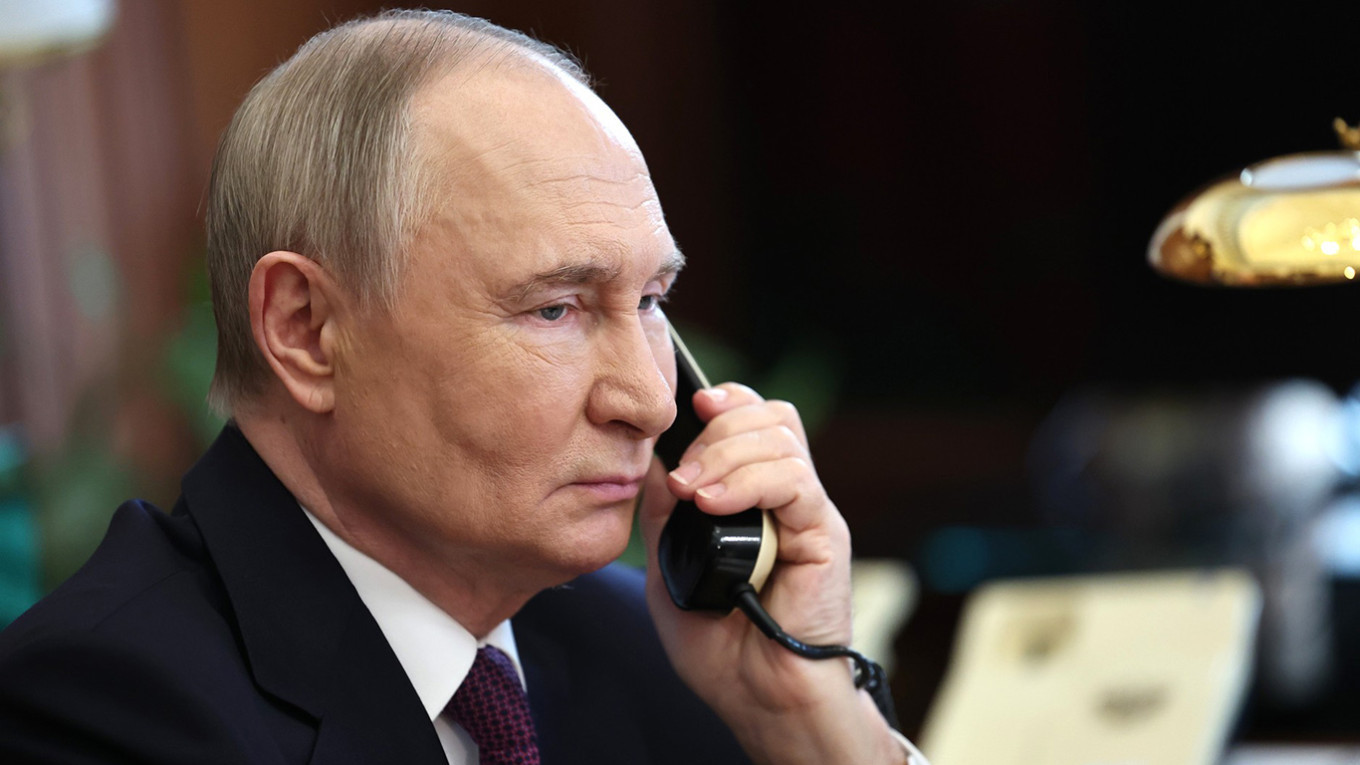President Vladimir Putin conducted phone conversations over the last two days with leaders from India, Brazil, South Africa, Belarus, and four Central Asian nations to discuss details about his recent meeting with U.S. President Donald Trump in Alaska.
On Monday, Indian Prime Minister Narendra Modi expressed gratitude to his “friend” Putin for “providing insights” from the Russia-U.S. summit. A statement from the Kremlin noted that Putin and Modi “examined the prospects for achieving a long-term resolution to the crisis in Ukraine and agreed to maintain an ongoing dialogue on this matter.”
Brazilian President Luiz Inácio Lula da Silva voiced his “continued support for all endeavors that contribute to a peaceful resolution” during their 30-minute conversation, wishing Putin success in the ongoing negotiations. The Kremlin stated that Lula “emphasized the significance of the information shared, taking into account the activities of the ‘Friends for Peace’ Group,” an initiative co-established by Brazil and China the previous year.
South African President Cyril Ramaphosa reported that Putin “expressed pleasure” regarding the Trump meeting and advocated for “compromise on essential issues to ensure lasting peace.” According to the Kremlin’s communication, Ramaphosa “showed support for diplomatic initiatives” concerning Ukraine.
Brazil, Russia, India, South Africa, and China are the founding nations of the BRICS alliance of major emerging economies.
On Sunday, Putin spoke with Belarusian President Alexander Lukashenko, who briefed the Russian leader about his own dialogue with Trump prior to the Alaska summit.
Later that day, Putin also had discussions with Uzbek President Shavkat Mirziyoyev and Kazakh President Kasym-Jomart Tokayev. The Kremlin conveyed that Mirziyoyev highlighted the necessity of achieving peace, while Tokayev “congratulated” Putin on the “successful negotiations.”
On Monday, the Russian president continued his outreach by calling Tajikistan’s President Emomali Rakhmon and Kyrgyzstan’s President Sadyr Japarov, both of whom reiterated their support for the peace initiatives.
Putin had previously undertaken a similar series of calls with Russia’s allies before the August 8 deadline set by Trump, threatening to impose new sanctions if the war in Ukraine did not conclude. Ultimately, the American president dropped his ultimatum after announcing that he had agreed to meet with Putin in Alaska for a crucial summit aimed at negotiating a peace agreement between Russia and Ukraine.
The meeting, which took place last Friday in Anchorage, did not result in the significant peace accord that the White House has been advocating for over the past several months. Trump is now set to meet with Ukrainian President Volodymyr Zelensky and various European leaders in Washington on Monday to deliberate on Putin’s conditions for ending the conflict.

